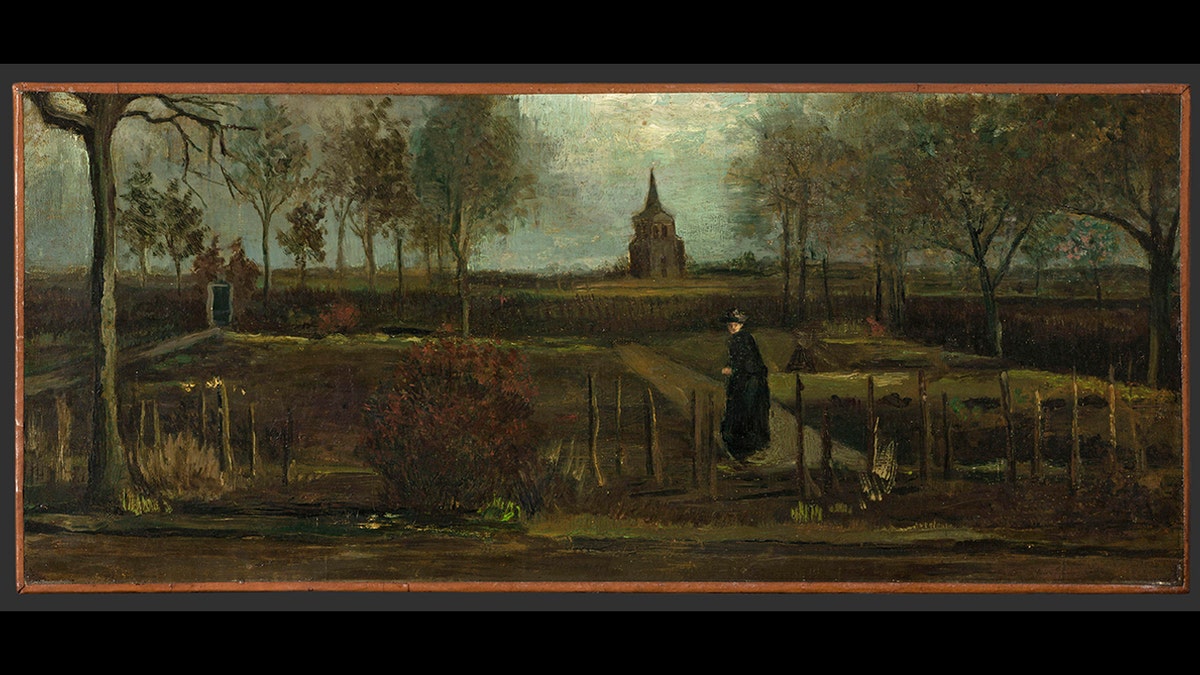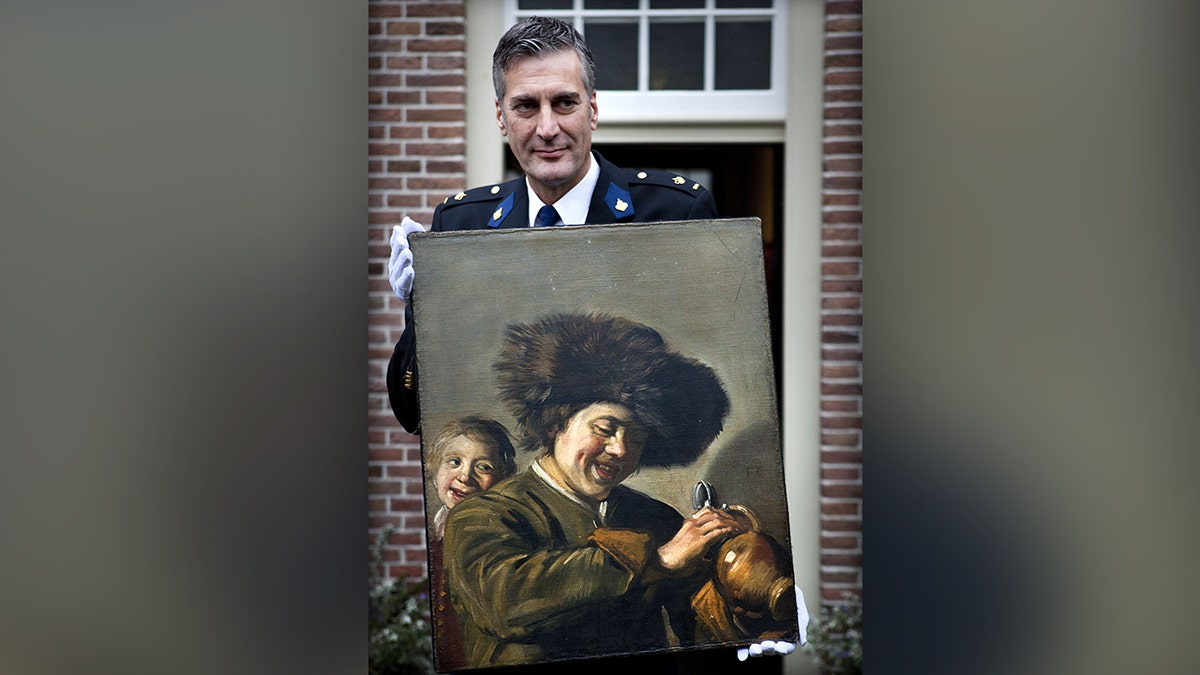Fox News Flash top entertainment headlines for April 6
Fox News Flash top entertainment and celebrity headlines are here. Check out what's clicking today in entertainment.
A 58-year-old man has been arrested in the Netherlands for allegedly swiping two paintings by Dutch masters Vincent van Gogh and Frans Hals from museums shuttered by the coronavirus pandemic, officials said.
Police spokeswoman Maren Wonder announced on video Tuesday that the man was arrested in Baarn, a municipality about 25 miles southeast of Amsterdam, according to Reuters.
No details were released about the unnamed suspect.
The paintings — Van Gogh’s "Parsonage Garden at Nuenen in Spring" and Hals’ "Two Laughing Boys" — have not been recovered and appealed to the public for help in locating them, Wonder said.
The Van Gogh is valued at up to $6.6 million and the Hals painting, which dates from 1626, has been valued at $18 million by one expert, the news agency reported.
"For months, intensive investigations into the robbery of both paintings were conducted under the leadership of the public prosecution service," the Dutch police statement said.

This image provided by the Groninger Museum on Monday March 30, 2020, shows Dutch master Vincent van Gogh's painting titled "The Parsonage Garden at Nuenen in Spring" which was stolen from the Singer Museum in Laren, Netherlands. (Groninger Museum via AP )
The Van Gogh was stolen March 30 — on what would have been the 19th-century painter’s 167th birthday — from the Singer Laren Museum near Amsterdam while it was closed due to coronavirus measures, Agence France-Presse reported.
"Parsonage Garden" comes from relatively early in the master’s career, before he embarked on his trademark post-Impressionist paintings such as "Sunflowers."
PALESTINIAN CHRISTIANS IN THE GAZA STRIP CELEBRATE EASTER AMID COVID-19 OUTBREAK
"Two Laughing Boys" was stolen during an August burglary at the Hofje van Mevrouw van Aerden museum in Leerdam, according to AFP.
The painting — which features two laughing boys with a mug of beer — was previously stolen from the same museum in 2011 and 1988. It was recovered after six months and three years, respectively.
Dutch art detective Arthur Brand, who was dubbed the "Indiana Jones of the Art World" for finding a number of lost paintings, praised police for their masterpiece collar.

This photograph taken on November 3, 2011, shows District Chief of Alblasserwaard, Bart Willemsen showing the recovered painting "Two Laughing Boys" by Frans Hals which was stolen from the Leerdam Museum in May 2011. (Photo by ILVY NJIOKIKTJIEN/ANP/AFP via Getty Images)
"Another huge success for Dutch Police," Brand said in a tweet. "The plot thickens…"
Van Gogh’s paintings have been a frequent target of criminals.
Two of his works went back on display at Amsterdam’s Van Gogh Museum two years ago after they were stolen in 2002.
The paintings — the 1882 " View of the Sea at Scheveningen" and the 1884/5 "Congregation Leaving the Reformed Church at Nuenen" — were recovered by Italian investigators in 2016 when they raided a home near Naples belonging to an infamous Mafia drug baron, AFP reported.
CLICK HERE TO GET THE FOX NEWS APP
Three van Goghs that were stolen from the Noordbrabants Museum in 1990 later resurfaced after a Dutch criminal reached a deal with prosecutors.
Hals — a contemporary of Rembrandt and Vermeer during the Dutch Golden Age — is best known for works including "The Laughing Cavalier," which hangs in the Wallace Collection in London, and "The Gypsy Girl" at the Louvre in Paris.
To read more from The New York Post, click here.
